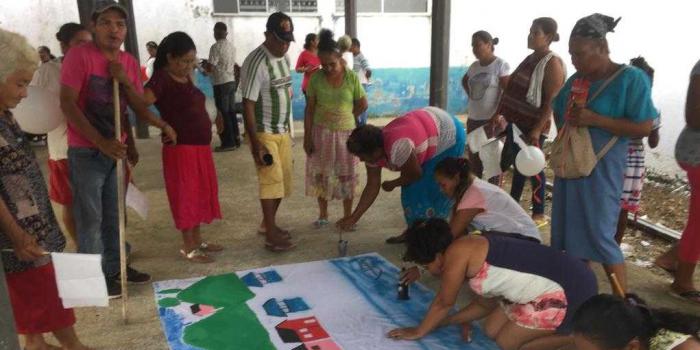
In Urabá, more than 1,200 survivors of conflict have received psychosocial accompaniment
The group emotional recovery strategy has allowed the survivors to heal the wounds caused by the armed conflict and to share experiences with other people based on reconciliation and resilience.

In the Punta Piedra village of Turbo municipality, Antioquia, six collaborative groups of the Emotional Recovery Strategy were integrated, which were convened to make the eighth meeting through a walk, and different symbolic acts in the main streets of the village. The event was attended by around 80 people.
In this meeting they also made a colorful patchwork quilt, graffiti, candles and white balloons to symbolize the union between them, and the different expressions that allowed them to reflect the pains and sorrows they have been able to mitigate after this experience, as narrated by Liliana Vera *: "you shut up and eat everything, only this strategy gave me the possibility to know that harder things have happened to others than to me and that gives me strength to help," she said.
After the walk, they resolved to share messages of reconciliation around a big fire, these activities framed in the rehabilitation measures that seek for the victims to reestablish their physical and psychosocial conditions, for this case, in the psychosocial, through the Strategy of Group Emotional Recovery.
Through the Group Emotional Recovery Strategy in Urabá, more than 1200 survivors of the armed conflict have been treated.






